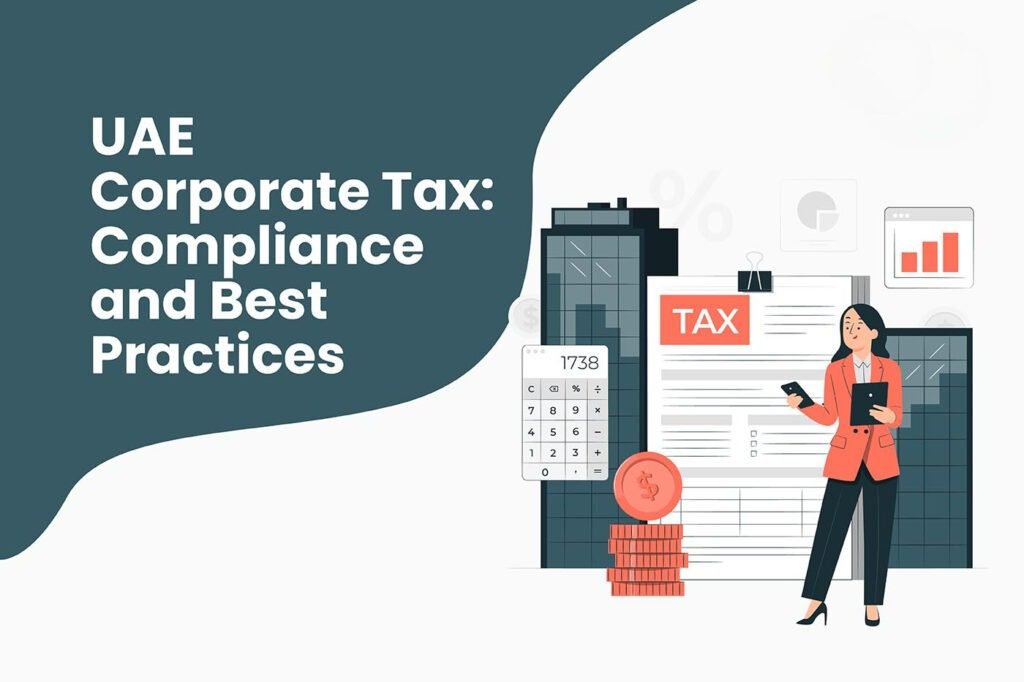
Do Influencers Need To Pay Tax in UAE?
Freelancers and influencers with an annual income exceeding AED 1 million are required to pay corporate tax in the UAE
Table of Contents
Related Articles


Sugar Tax Reform Will Crush Small UAE Drink Brands

The Impact of CARF on UAE Crypto Traders | Ready to Report FTA

Let's Talk
Sign Up For Free Consultation
Do influencers pay taxes in UAE?
In the UAE, the rapid rise of content creators, vloggers, and social media influencers has brought a common but crucial question to the spotlight: Do influencers need to pay tax? Whether you earn through sponsored posts, affiliate marketing, brand partnerships, or digital services, the Federal Tax Authority (FTA) now considers most influencer income taxable under UAE VAT and corporate tax regulations. Understanding your tax obligations is essential to avoid penalties and stay fully compliant. Professional firms like Tulpar Global Taxation help influencers navigate VAT registration, VAT returns, and corporate tax requirements with ease, ensuring your digital business grows smoothly while meeting all UAE tax laws.

In recent years, social media influencers have become key players in shaping consumer behavior and driving marketing trends across various industries. With their ability to sway opinions and promote brands to vast audiences, influencers are now essential partners for businesses seeking to tap into new markets. However, as the influencer economy continues to grow in the UAE, an important question arises: Do influencers need to pay tax in the UAE? This is a crucial consideration for influencers looking to expand their income while staying compliant with local regulations.
As the UAE develops its tax framework, influencers must be aware of their obligations within this evolving landscape. While the UAE remains attractive with no personal income tax, influencers may still need to pay Value Added Tax (VAT) if their earnings exceed the VAT registration threshold. Additionally, influencers providing paid promotional services may be required to register their activities as a business and ensure proper tax reporting. This blog explores the current tax obligations for influencers in the UAE and offers best practices to ensure compliance while maintaining business growth.
Understanding Influencers and Their Earnings

Before diving into the specifics of taxation, it’s essential to grasp the various ways influencers generate their earnings. Influencers have a diverse revenue stream, with the most common sources including:
Sponsored Posts: Influencers collaborate with brands and receive compensation for promoting their products or services to their audience. This arrangement can be a one-time payment or a series of posts over a specified period, significantly impacting an influencer’s income.
Affiliate Marketing: Influencers earn commissions by promoting products through unique affiliate links. When their followers purchase through these links, the influencers receive a percentage of the sale. This model incentivizes influencers to create engaging content that drives their audience to make purchases.
Content Creation: Many influencers charge fees for creating high-quality content, such as blog posts, videos, or social media updates tailored to the brands they work with. This can include photography, writing, and editing, reflecting their expertise in content production.
Brand Ambassadorships: Influencers often enter into long-term partnerships with brands, where they represent the brand in exchange for regular payments. These collaborations can enhance brand loyalty and provide a steady income stream for influencers.
Merchandise Sales: Some influencers capitalize on their personal brand by selling branded merchandise or products directly to their audience. This can include clothing, accessories, or digital products, creating a direct connection with their followers.
Given this diverse range of income sources, it is crucial to understand how each is treated under UAE tax laws, as this will help influencers navigate their financial responsibilities effectively.
The Tax Environment in the UAE
The UAE has long been renowned for having a tax climate that is beneficial. The absence of personal income tax has made it an attractive destination for individuals and businesses. However, there are specific regulations and changes in recent years that affect different sectors, including influencers.
1. Value Added Tax (VAT)
The introduction of VAT in the UAE in January 2018 marked a significant shift in the tax landscape. Value addition is subject to a consumption tax, or VAT, at every stage of production or distribution. In the UAE, VAT rate is 5%
VAT and Influencers:
- VAT Registration: Influencers who have a taxable supply of goods or services exceeding AED 375,000 annually are required to register for VAT. If an influencer’s income from sponsored posts, affiliate marketing, or other services exceeds this threshold, they must register for VAT with the Federal Tax Authority (FTA).
- VAT Compliance: Registered influencers must issue VAT-compliant invoices for their services, charge VAT on their fees, and file VAT returns regularly. They can also claim input VAT on business-related expenses.
2. Corporate Tax
While personal income tax does not apply, certain business structures may be subject to corporate tax. The UAE has introduced a new corporate tax regime effective from June 2023, imposing a 9% tax on taxable income exceeding AED 375,000.
Corporate Tax and Influencers:
- Business Structure: Influencers operating as businesses or through entities like limited liability companies (LLCs) will need to comply with corporate tax regulations. This includes maintaining accurate records, filing corporate tax returns, and paying the applicable tax.
- Freelancers and Sole Traders: Influencers working as freelancers or sole traders may not be directly subject to corporate tax but should consider their overall income in relation to VAT registration and compliance.
3. Other Considerations
- Economic Substance Regulations: For influencers involved in substantial business activities in the UAE, economic substance regulations may apply, requiring proof that their business activities have substantial economic presence in the UAE.
- Double Taxation Agreements (DTAs): The UAE has agreements with various countries to avoid double taxation. Influencers who earn income from international sources should review applicable DTAs to ensure they do not pay tax twice on the same income.
Tax Obligations for Influencers

Influencers must thoroughly understand and fulfill their tax obligations to avoid legal issues and financial penalties. Proper tax management is essential for sustaining a successful influencer business, as non-compliance can lead to significant repercussions. Here are the key responsibilities influencers should be aware of:
Keeping Track of Documents
It is vital to maintain thorough records of all earnings, expenses, and agreements related to your influencer operations. This includes tracking income from sponsored posts, affiliate marketing, and merchandise sales, as well as documenting all related expenses, such as marketing costs, equipment purchases, and professional services. Organized records will not only simplify tax reporting but also provide necessary evidence in case of audits.
VAT Registration
If your annual income exceeds AED 375,000, you are required to register for VAT with the Federal Tax Authority (FTA). This registration obligates you to comply with VAT regulations, which includes issuing VAT-compliant invoices, accurately calculating VAT on your services, and timely filing VAT returns. Ensuring compliance in this area is crucial to avoid penalties and maintain a good standing with tax authorities.
Corporate Tax Compliance
For those operating through a business entity, it is essential to comply with corporate tax regulations. This includes maintaining accurate financial records, filing corporate tax returns, and ensuring that all income is properly reported. Understanding corporate tax obligations is critical, as it affects not only financial outcomes but also the overall sustainability of the business.
International Income
If you earn income from international sources, it is important to ensure compliance with relevant Double Taxation Agreements (DTAs) and reporting requirements. This involves understanding how your earnings are taxed in both the UAE and the country where the income is generated. Adhering to these regulations can help avoid double taxation and optimize your overall tax liability.
Professional Advice
Given the complexities of tax regulations, consider consulting with a tax advisor or accountant who has experience with UAE tax laws. Professionals can provide valuable insights into your tax obligations, help optimize your tax position, and ensure that you are fully compliant with all relevant regulations. Their expertise can significantly alleviate the stress associated with tax management and help you make informed financial decisions.
By recognizing and fulfilling these responsibilities, influencers can create a strong foundation for their business and mitigate the risks associated with tax compliance. This proactive approach will not only protect their financial interests but also enable them to focus on what they do best: building their brand and connecting with their audience.
Best Practices for Tax Compliance

To ensure smooth tax compliance, influencers should adopt the following best practices that can help them manage their financial responsibilities effectively:
Stay Informed: It is essential for influencers to regularly update themselves on changes in tax laws and regulations that may impact their activities. This includes being aware of any new tax obligations, compliance deadlines, or amendments that could affect how their earnings are taxed. Subscribing to tax newsletters or following relevant tax authorities on social media can be beneficial.
Implement a System: Utilizing accounting software or hiring a professional accountant can significantly streamline the management of financial records. These tools help influencers track their income and expenses accurately, manage VAT obligations, and prepare for tax filings. A systematic approach ensures that no income goes unreported and that expenses are documented for potential deductions.
Separate Personal and Business Finances: Maintaining separate bank accounts and financial records for influencer-related activities simplifies tax reporting and compliance. This separation not only makes it easier to track business expenses but also helps in providing clear documentation in the event of an audit, thus reducing stress during tax season.
Monitor Income Thresholds: Influencers should keep a close watch on their income levels to determine if they need to register for VAT or comply with corporate tax regulations. Being proactive in understanding these thresholds can prevent potential penalties and ensure that influencers remain compliant with local tax laws.
Seek Professional Help: Engaging a tax advisor or accountant who specializes in influencer income can provide tailored advice and guidance. Professionals can help influencers navigate the complexities of tax compliance, ensuring that they meet all their tax obligations while maximizing potential deductions.
By implementing these best practices, influencers can not only ensure compliance but also enhance their overall financial management and peace of mind.
Conclusion
In summary, while the UAE’s tax environment is generally favorable compared to many other countries, influencers must still navigate specific tax requirements, particularly those related to Value Added Tax (VAT) and corporate tax. Understanding these obligations is crucial for influencers to ensure compliance and avoid any legal complications. By adopting best practices such as staying informed about regulatory changes, implementing effective financial management systems, and separating personal and business finances, influencers can simplify their tax reporting processes. Monitoring income thresholds and seeking professional advice from tax advisors or accountants can further enhance their compliance efforts.
As regulations continue to evolve, it is vital for influencers to remain proactive in managing their tax responsibilities. Staying informed and seeking tailored guidance will enable influencers to focus on growing their brand and income without the distraction of potential tax-related issues. By prioritizing tax compliance, influencers can build a solid foundation for their financial success in the dynamic landscape of the UAE.
FAQs:
Yes. Influencers in the UAE must consider both corporate tax and VAT on income generated from sponsorships, brand deals, ad revenue, affiliate marketing, and other monetised activities, as their earnings are treated as business income.
Influencers in the UAE aren’t subject to personal income tax, but they may be liable for corporate tax (if income exceeds thresholds) and 5% VAT on services provided once registration requirements are met.
If an influencer earns business income from their activities in the UAE, they must register with the Federal Tax Authority (FTA). Corporate tax liability starts when taxable profits exceed AED 375,000 per year.
Under current UAE rules: 0% tax applies on net profits up to AED 375,000, and 9% corporate tax is charged on profits above that threshold.
Yes, if an influencer’s taxable supplies (services or goods sold) exceed AED 375,000 within 12 months, VAT registration is mandatory and they must charge 5% VAT to clients.
Yes. Non‑cash compensation such as gifts, travel, or barter arrangements received as part of commercial agreements must be valued and accounted for as income subject to VAT and corporate tax requirements.
Non‑compliance can lead to fines, penalties, blocked license renewal, or even criminal prosecution in serious cases. The FTA actively enforces registration and reporting rules.
Yes. To operate legally and comply with tax laws, influencers typically need a UAE trade license and, under updated regulations, a media license for posting paid content, reflecting their status as businesses.
Firms like Tulpar Global Taxation assist influencers with tax registration, corporate tax compliance, VAT setup, structuring income streams correctly, and optimising tax obligations under UAE law.
If the influencer is a UAE tax resident and the income is linked to their UAE business activities, it may be taxable under corporate tax rules. Double taxation agreements and professional guidance (e.g., from Tulpar Global Taxation) can help clarify cross‑border earnings.
